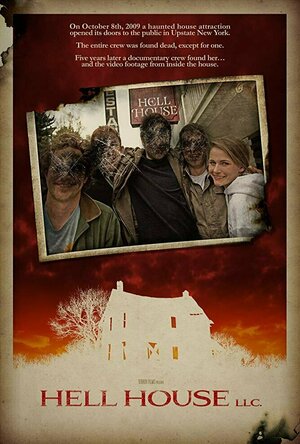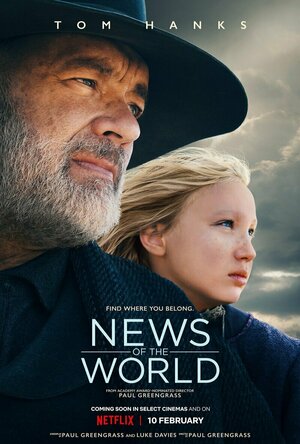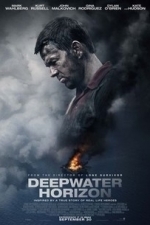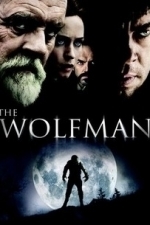Search
Search results
Hazel (1853 KP) rated Return to the Little Coffee Shop of Kabul (The Little Coffee Shop of Kabul #2) in Books
Dec 14, 2018
<i>I received this book for free through Goodreads First Reads.</i>
Five years since the publication of her fictional debut, fans of Deoborah Rodriguez will be pleased to know they can finally get their hands on the sequel: Return to the <i>Little Coffee Shop of Kabul</i>. In the first book (<i>The Little Coffee Shop of Kabul</i>) we are introduced to Sunny, a 38-year-old American, who has set up a coffee shop in the heart of Afghanistan. Now she has returned to the US, after the unfortunate death of her boyfriend, to a house on an island she did not really want. Meanwhile, her coffee shop struggles to continue in the hands of her Afghan friends.
The narrative alternates between the USA and Afghanistan, keeping the reader informed of two completely different scenarios. Sunny is dealing with the loss of Jack and her conflicted feelings over whether she should stay and live Jack’s dream lifestyle or return to her beloved Kabul. On the other hand, Yazmina and the others reveal to the reader how difficult and dangerous life is for the Afghanistan natives, especially for the women who have very little rights.
As well as the original characters, there are a number of new names introduced to the story. In Afghanistan a young girl is trying to escape an arranged marriage to an evil, rich man – something that has disastrous consequences for herself and her newfound friends. On the other side of the world, Layla, Yazmina’s sister, is experiencing Western culture living with Sunny, and is shocked at how friendly men and women are with each other.
Another new face to add to the mix is Kat, a young woman who escaped to America as a child and has turned her back on the traditions of Islam and the Afghan culture. Despite her growing friendship with Layla, she refuses to agree with Layla’s beliefs, particularly in regards to the <i>hijab</i>. Neither girl’s opinion is more valid than the other however, as they have both had completely different upbringings. Kat has spent the better part of her life relishing in the freedom of Western culture, whereas Layla finds comfort in her traditions.
<i>Return to the Little Coffee Shop of Kabul </i>contains a couple of powerful messages. Firstly, as Sunny realizes, you need to be thankful for what you have got and not assume that going back to a lifestyle you used to follow would be the same as it once was. On the flip side, the Muslim family in Kabul begins to learn that they do not have to put up with the strict, unfairness in the treatment of women, and can strive to do something about it.
It is not necessary to have read the previous book, as there is enough character description and history mentioned within the narrative for new readers to be able to follow along. It is also suitable for book groups as it contains a series of reading group questions at the end of the novel.
Despite its upsetting scenes,<i> Return to the Little Coffee Shop of Kabul </i>is essentially a happy book. The character Sunny, definitely lives up to her name; there is no over emphasis on any of the negative situations she or her friends find themselves in. In a world where it would be easy to fall into despair, Rodriguez has written a story with a positive outlook on life and hope for the future.
Five years since the publication of her fictional debut, fans of Deoborah Rodriguez will be pleased to know they can finally get their hands on the sequel: Return to the <i>Little Coffee Shop of Kabul</i>. In the first book (<i>The Little Coffee Shop of Kabul</i>) we are introduced to Sunny, a 38-year-old American, who has set up a coffee shop in the heart of Afghanistan. Now she has returned to the US, after the unfortunate death of her boyfriend, to a house on an island she did not really want. Meanwhile, her coffee shop struggles to continue in the hands of her Afghan friends.
The narrative alternates between the USA and Afghanistan, keeping the reader informed of two completely different scenarios. Sunny is dealing with the loss of Jack and her conflicted feelings over whether she should stay and live Jack’s dream lifestyle or return to her beloved Kabul. On the other hand, Yazmina and the others reveal to the reader how difficult and dangerous life is for the Afghanistan natives, especially for the women who have very little rights.
As well as the original characters, there are a number of new names introduced to the story. In Afghanistan a young girl is trying to escape an arranged marriage to an evil, rich man – something that has disastrous consequences for herself and her newfound friends. On the other side of the world, Layla, Yazmina’s sister, is experiencing Western culture living with Sunny, and is shocked at how friendly men and women are with each other.
Another new face to add to the mix is Kat, a young woman who escaped to America as a child and has turned her back on the traditions of Islam and the Afghan culture. Despite her growing friendship with Layla, she refuses to agree with Layla’s beliefs, particularly in regards to the <i>hijab</i>. Neither girl’s opinion is more valid than the other however, as they have both had completely different upbringings. Kat has spent the better part of her life relishing in the freedom of Western culture, whereas Layla finds comfort in her traditions.
<i>Return to the Little Coffee Shop of Kabul </i>contains a couple of powerful messages. Firstly, as Sunny realizes, you need to be thankful for what you have got and not assume that going back to a lifestyle you used to follow would be the same as it once was. On the flip side, the Muslim family in Kabul begins to learn that they do not have to put up with the strict, unfairness in the treatment of women, and can strive to do something about it.
It is not necessary to have read the previous book, as there is enough character description and history mentioned within the narrative for new readers to be able to follow along. It is also suitable for book groups as it contains a series of reading group questions at the end of the novel.
Despite its upsetting scenes,<i> Return to the Little Coffee Shop of Kabul </i>is essentially a happy book. The character Sunny, definitely lives up to her name; there is no over emphasis on any of the negative situations she or her friends find themselves in. In a world where it would be easy to fall into despair, Rodriguez has written a story with a positive outlook on life and hope for the future.
Lee (2222 KP) rated Hell House LLC (2015) in Movies
Jan 20, 2020
I'd heard very little about Hell House LLC before watching it and hadn't even seen the trailer either. But, it had been highly recommended by a few people and had been sitting on my Amazon Prime watch-list for some time anyway, so I decided to give it a shot. It's a found footage horror, which has been done to death now, so it's easy to go into another one feeling cynical and apprehensive. However, there is still the occasional hidden gem out there waiting to be found and, for me, Hell House LLC turned out to be one of them.
The plot surrounds a Halloween house tour in an old abandoned hotel in a small American town. On opening night, as dozens of thrill-seekers descend on the house to enjoy the various mannequins and lighting effects that have been setup to try and scare them, there is an incident down in the basement. Panic ensues as everyone tries to locate the exits and there are a number of mysterious deaths, along with numerous injuries. We see a YouTube video that somebody recorded during their tour, but they didn't quite make it to the basement to capture what went on, so all we see is them making a hasty exit. Five years on and the hotel is now boarded up, while the whole tragedy remains unexplained. Now though, the sole survivor of the crew responsible for putting on the event has approached a documentary crew with a bunch of video tapes that were recorded by the team in the run-up to opening night, so hopefully the truth will finally be revealed.
We begin with the team driving to the hotel for the first time, before going inside to check it all out. They've put on Halloween house tours before, but this one is a bit of a challenge due to the derelict nature of the hotel. First they need to get power to the place, in order to setup safety cameras in every room and corridor, strobe lighting etc. Then they start setting up the various rooms, working out themes and hiring a small group of actors to dress up and scare people during the tour. Early on in the movie, these scenes are interspersed with interviews from reporters, photographers and historians who recount some of the troubled history of the hotel and give us a bit more detail as to what happened during and after the events of the tours opening night.
The crew of five are all staying in the hotel as they work towards the big day, all the while documenting their progress and the various challenges they encounter. The place is seriously creepy anyway and the movie takes it's time in establishing the characters and making sure you're familiar with everything they've installed and the general layout of the hotel before mysterious things start happening, usually at night while everyone is trying to sleep. At first, things are basic enough that it's easy for them to accuse someone of trying to prank the others, but they soon start to increase in intensity and creepiness. Despite all common sense, preparations still continue for the big night which, as we already know, turns out to be a big mistake.
I really liked Hell House LLC. I'm still not actually sure what happened down in the basement, or afterwards for that matter, but the build up to it really did work well for me and there were some very effective and genuinely unsettling moments. And I do love feeling unsettled by a movie!
The plot surrounds a Halloween house tour in an old abandoned hotel in a small American town. On opening night, as dozens of thrill-seekers descend on the house to enjoy the various mannequins and lighting effects that have been setup to try and scare them, there is an incident down in the basement. Panic ensues as everyone tries to locate the exits and there are a number of mysterious deaths, along with numerous injuries. We see a YouTube video that somebody recorded during their tour, but they didn't quite make it to the basement to capture what went on, so all we see is them making a hasty exit. Five years on and the hotel is now boarded up, while the whole tragedy remains unexplained. Now though, the sole survivor of the crew responsible for putting on the event has approached a documentary crew with a bunch of video tapes that were recorded by the team in the run-up to opening night, so hopefully the truth will finally be revealed.
We begin with the team driving to the hotel for the first time, before going inside to check it all out. They've put on Halloween house tours before, but this one is a bit of a challenge due to the derelict nature of the hotel. First they need to get power to the place, in order to setup safety cameras in every room and corridor, strobe lighting etc. Then they start setting up the various rooms, working out themes and hiring a small group of actors to dress up and scare people during the tour. Early on in the movie, these scenes are interspersed with interviews from reporters, photographers and historians who recount some of the troubled history of the hotel and give us a bit more detail as to what happened during and after the events of the tours opening night.
The crew of five are all staying in the hotel as they work towards the big day, all the while documenting their progress and the various challenges they encounter. The place is seriously creepy anyway and the movie takes it's time in establishing the characters and making sure you're familiar with everything they've installed and the general layout of the hotel before mysterious things start happening, usually at night while everyone is trying to sleep. At first, things are basic enough that it's easy for them to accuse someone of trying to prank the others, but they soon start to increase in intensity and creepiness. Despite all common sense, preparations still continue for the big night which, as we already know, turns out to be a big mistake.
I really liked Hell House LLC. I'm still not actually sure what happened down in the basement, or afterwards for that matter, but the build up to it really did work well for me and there were some very effective and genuinely unsettling moments. And I do love feeling unsettled by a movie!

Think and Grow Rich by Napoleon Hill Summary Book
Book and Reference
App
All Purchases of this Audiobook Program Go To Supporting the Napoleon Hill Foundation ...

Touch Bible Loaded - Bible Study App With Audio
Reference and Book
App
Loaded with Bible Study Content and Features •◆• Audio Bible with Multitasking •◆• Study...
Gareth von Kallenbach (980 KP) rated News of the World (2020) in Movies
Dec 24, 2020
Tom Hanks and Director Paul Greengrass have combined to create a truly moving and memorable western which is one of the best films of 2020.
Hanks stars as Captain Kidd; a former Confederate Captain making his way in occupied Texas in the post-Civil-War era. Kidd travels from town to town reading various newspaper stories of interest to gathered locals who are too busy or unable to read the news and look forward to his lively interpretations of news of interest on a local and national level.
On his way to his next location; Kidd comes upon a fair skinned blonde girl wearing Native American clothing and speaking a tribal dialect he does not understand. The fact that their cart has been overturned and a lone male is hanging from a tree leads Kidd to uncover the tragic history of the child.
According to documents he discovers in the wreck; she was taken during a raid and her parents and sibling killed. The tribe that raised her was subsequently killed leaving her an orphan twice over. As such; the girl named Johanna (Helena Zengel); is to be taken to a nearby town and remanded to a local agency for transportation to an Aunt and her husband over 600 miles away.
Kidd sees it as his duty to take her to the nearby town which is confirmed by some passing Union soldiers who occupy the area during the Reconstruction era much to the scorn of the locals who are stinging from losing the Civil War.
Things do not go as planned as Kid is told that the authority in charge of such cases is away for three months so he must either wait or deliver the girl himself.
Thanks to the help of a former soldier under his command, Kidd sets out on the road to Dallas and then to the very dangerous areas beyond as he attempts to take Johanna to safety.
Along the way the two will face danger, challenges, and bond on a very memorable journey.
Hanks is very solid in the role and his character is compassionate yet complex. There is a reason for his generosity and he attempts to make peace with the pain and regret in his life by trying to do what is right and coming to terms with what has plagued him.
The film moves at a steady pace and does not have many extended action sequences but when action does arrive it is central to the story and never seems gratuitous.
Zengel is a great pairing with Hanks as the young German actress will be one to watch going forward. She is able to convey so much without an abundance of lines and you can clearly see how well she and Hanks clicked.
The visuals of the film are scenic as the audience really gets a look at the rugged beauty of the land and life during this era. It was fascinating to see what Dallas and San Antonio looked like in the 1860s after knowing them as the modern cities that they are today.
There is much to like about the film and I am eagerly putting “News of the World” on my best of 2020 list and I truly hope this film gets the recognition it deserves come awards time as it is truly a wonderful and inspiring film that is cinema at its finest.
4.5 stars out of 5
Hanks stars as Captain Kidd; a former Confederate Captain making his way in occupied Texas in the post-Civil-War era. Kidd travels from town to town reading various newspaper stories of interest to gathered locals who are too busy or unable to read the news and look forward to his lively interpretations of news of interest on a local and national level.
On his way to his next location; Kidd comes upon a fair skinned blonde girl wearing Native American clothing and speaking a tribal dialect he does not understand. The fact that their cart has been overturned and a lone male is hanging from a tree leads Kidd to uncover the tragic history of the child.
According to documents he discovers in the wreck; she was taken during a raid and her parents and sibling killed. The tribe that raised her was subsequently killed leaving her an orphan twice over. As such; the girl named Johanna (Helena Zengel); is to be taken to a nearby town and remanded to a local agency for transportation to an Aunt and her husband over 600 miles away.
Kidd sees it as his duty to take her to the nearby town which is confirmed by some passing Union soldiers who occupy the area during the Reconstruction era much to the scorn of the locals who are stinging from losing the Civil War.
Things do not go as planned as Kid is told that the authority in charge of such cases is away for three months so he must either wait or deliver the girl himself.
Thanks to the help of a former soldier under his command, Kidd sets out on the road to Dallas and then to the very dangerous areas beyond as he attempts to take Johanna to safety.
Along the way the two will face danger, challenges, and bond on a very memorable journey.
Hanks is very solid in the role and his character is compassionate yet complex. There is a reason for his generosity and he attempts to make peace with the pain and regret in his life by trying to do what is right and coming to terms with what has plagued him.
The film moves at a steady pace and does not have many extended action sequences but when action does arrive it is central to the story and never seems gratuitous.
Zengel is a great pairing with Hanks as the young German actress will be one to watch going forward. She is able to convey so much without an abundance of lines and you can clearly see how well she and Hanks clicked.
The visuals of the film are scenic as the audience really gets a look at the rugged beauty of the land and life during this era. It was fascinating to see what Dallas and San Antonio looked like in the 1860s after knowing them as the modern cities that they are today.
There is much to like about the film and I am eagerly putting “News of the World” on my best of 2020 list and I truly hope this film gets the recognition it deserves come awards time as it is truly a wonderful and inspiring film that is cinema at its finest.
4.5 stars out of 5
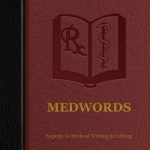
Carter’s Encyclopaedia of Health and Medicine
Health & Fitness and Medical
App
Carter’s Encyclopaedia of Health and Medicine is an extremely comprehensive iPad application...
Bob Mann (459 KP) rated Deepwater Horizon (2016) in Movies
Sep 29, 2021
“Full of sound and fury, Signifying nothing” could be a summary of this modern-age disaster movie. In 2010 the “Deepwater Horizon” drilling rig off the coast of Louisiana failed in spectacular fashion, bursting into flames and spewing millions of barrels of crude oil into the Gulf of Mexico in what was the worst oil-spill in American history. Mark Wahlberg plays the well-respected electrical ‘Mr fixit’ Mike Williams on the rig, reporting to the Operations Manager Jimmy Harrell (Kurt Russell).
The exploratory project is way-behind and BP are not happy. Big-wigs from the company add support to Donald Vidrine, the BP site leader, in applying mounting pressure on Harrell to press on regardless without all the necessary and time-consuming tests by Schlumberger being completed. Rogue numbers in further tests are waved away as ‘glitches’. A familiar story of corporate greed and pressure overriding the expert’s better judgment.
When disaster strikes it strikes quickly, with some spectacular and exciting special effects that leave the audience especially hot under the collar. Female support is provided by the comely Andrea Fleytas (Gina Rodriguez), given the almost impossible job of keeping the floating bomb on station as chaos reigns about her. As an audience we are back on familiar ground here from classic Irwin Allen disaster movies such as “The Towering Inferno” and “The Poseidon Adventure”. Who will make it, and who won’t?
A more telling question here is “Do we care?” and unfortunately for the film, the answer is “Not really”. This feels a callous thing to say when this was a real and recent event and eleven people and – as touchingly illustrated at the end of the film in tribute – many of them family men with young kids, never went home again. But film-wise, we only really get bought into the fate of Williams, whose back-story, with cute wife (Kate Hudson) and cute daughter (Stella Allen) we get to meet and sympathize with.
We get a minimalist view of Fleytas’s backstory, but only enough to provide a recurring “Mustang” reference. And that’s it. All the other characters are just two-dimensional “rig crew”: cannon-fodder for the special effects team. The screenplay by Matthew Sand and Matthew Carnahan really doesn’t deliver enough heft to get us bought in.
While the special effects are good, the sound design isn’t, with much of the dialogue being incomprehensible.
All the acting is fine, with the ever-watchable John Malkovich nicely portraying the corporate head you love to hate. Wahlberg as well delivers enough range to make you forget in this “action mode” that he was also in “Ted”. And Rodriguez as a junior lead holds her own against the big guns in what is a creditable performance in a big film role for her.
While “Lone Survivor”/”Battleship” director Peter Berg neatly provides an insight into life on and around rigs, and (via subtitles) descriptions of the drilling process which I found interesting, this comes down to the sum of a tense build up, an hour of frenetic disaster, and then a whimper of an ending. Where were some of the dramatic scenes of conflict in the congressional hearing that the film’s opening implies might come? Where are the scenes of ecological disaster and local financial ruin to add emotional angles to the story? None of this is really exploited and the whole concoction comes across a bit “meh” as a result. Not a bad film by any means. But not one I will remember in a month or two’s time.
The exploratory project is way-behind and BP are not happy. Big-wigs from the company add support to Donald Vidrine, the BP site leader, in applying mounting pressure on Harrell to press on regardless without all the necessary and time-consuming tests by Schlumberger being completed. Rogue numbers in further tests are waved away as ‘glitches’. A familiar story of corporate greed and pressure overriding the expert’s better judgment.
When disaster strikes it strikes quickly, with some spectacular and exciting special effects that leave the audience especially hot under the collar. Female support is provided by the comely Andrea Fleytas (Gina Rodriguez), given the almost impossible job of keeping the floating bomb on station as chaos reigns about her. As an audience we are back on familiar ground here from classic Irwin Allen disaster movies such as “The Towering Inferno” and “The Poseidon Adventure”. Who will make it, and who won’t?
A more telling question here is “Do we care?” and unfortunately for the film, the answer is “Not really”. This feels a callous thing to say when this was a real and recent event and eleven people and – as touchingly illustrated at the end of the film in tribute – many of them family men with young kids, never went home again. But film-wise, we only really get bought into the fate of Williams, whose back-story, with cute wife (Kate Hudson) and cute daughter (Stella Allen) we get to meet and sympathize with.
We get a minimalist view of Fleytas’s backstory, but only enough to provide a recurring “Mustang” reference. And that’s it. All the other characters are just two-dimensional “rig crew”: cannon-fodder for the special effects team. The screenplay by Matthew Sand and Matthew Carnahan really doesn’t deliver enough heft to get us bought in.
While the special effects are good, the sound design isn’t, with much of the dialogue being incomprehensible.
All the acting is fine, with the ever-watchable John Malkovich nicely portraying the corporate head you love to hate. Wahlberg as well delivers enough range to make you forget in this “action mode” that he was also in “Ted”. And Rodriguez as a junior lead holds her own against the big guns in what is a creditable performance in a big film role for her.
While “Lone Survivor”/”Battleship” director Peter Berg neatly provides an insight into life on and around rigs, and (via subtitles) descriptions of the drilling process which I found interesting, this comes down to the sum of a tense build up, an hour of frenetic disaster, and then a whimper of an ending. Where were some of the dramatic scenes of conflict in the congressional hearing that the film’s opening implies might come? Where are the scenes of ecological disaster and local financial ruin to add emotional angles to the story? None of this is really exploited and the whole concoction comes across a bit “meh” as a result. Not a bad film by any means. But not one I will remember in a month or two’s time.
Debbiereadsbook (1650 KP) rated Knot That Pucker (Knotty Puckers, #3) in Books
Jan 21, 2026
loved this!
Independent reviewer for BookSirens, I was gifted my copy of this book.
OHHHHH! I loved this! Even if it is first person/present tense/multi POV!
Bailey is Benton's little sister. Benton is star player for the Krakens. Lincoln is an electrician, but his brother is Korbin, arch enemy to Benton, star player for the Scorpions, along with Milton. Korbin, Lincoln and Milton are brothers in all but blood and they always planned to be a pack. They were just waiting for their scent match. Along comes Bailey into their orbit, and all bets are off, regardless who her big brother is. But will Benton let Bailey be happy, that is the big question, given hsi and Korbin's history.
What I loved MOST about this, was that while Lincoln has a deeply profound MINE moment, it's not because Bailey is their scent match. She isn't, her scent match rejected her, because she was deaf. But Lincoln, after just a couple of meetings with Bailey, knows that she is his, and he just needs to get Korbin and Milton on board.
And on board they get, slowly though and I loved that too! They all take their time with Bailey, slowly, letting her get used to them all. Individually, and together.
The Benton Korbin feud was somewhat annoying, given what is said about Gina and what happened. I can understand, though, why Benton is against Bailey getting with the guys. I did like that he comes good, though, even if he was a bit of a twat (I can't say what I want to, some sites won't let me swear!) He and Korbin talk, really talk, and even though they might never be best buds, they are not feuding anymore.
It's steamy and smexy, but emotional too.
I need to say a little bit about Bailey and her deafness and how it was dealt with here.
I cannot fault it! Bailey is deaf, wears an implant which I assume, but I don't think it was DEFINATELY said, is a cochlear implant. She lips reads, and signs. As a deaf person, I felt the whole topic was dealt with amazingly, amd with sensivitity. I loved that lots of tiny little details were pointed out, and that each man made a massive effort to communicate with Bailey, either by making sure she can lip read them, or having a note pad, or, (and this was the kicker that made it for me!) learning sign language to ask Bailey out, in a way she can really understand what they want.
The book cites American Sign Language. As a UK person, I know that ASL and British Sign Language are different, and at times I got a bit lost in the detailed descriptions of signs. For example, the alphabet in ASL is all done on one hand, in BSL, you use 2. BUT! I found myself trying to do the signs as they were described, when I concentrated more. I don't need sign language, yet, but there may well come I time that I do.
Benton's story is next. We know her name, but not who his pack mates will be! And James needs to be happy too!
5 full and shiny stars, please write more of these people!!
*same worded review will appear elsewhere
OHHHHH! I loved this! Even if it is first person/present tense/multi POV!
Bailey is Benton's little sister. Benton is star player for the Krakens. Lincoln is an electrician, but his brother is Korbin, arch enemy to Benton, star player for the Scorpions, along with Milton. Korbin, Lincoln and Milton are brothers in all but blood and they always planned to be a pack. They were just waiting for their scent match. Along comes Bailey into their orbit, and all bets are off, regardless who her big brother is. But will Benton let Bailey be happy, that is the big question, given hsi and Korbin's history.
What I loved MOST about this, was that while Lincoln has a deeply profound MINE moment, it's not because Bailey is their scent match. She isn't, her scent match rejected her, because she was deaf. But Lincoln, after just a couple of meetings with Bailey, knows that she is his, and he just needs to get Korbin and Milton on board.
And on board they get, slowly though and I loved that too! They all take their time with Bailey, slowly, letting her get used to them all. Individually, and together.
The Benton Korbin feud was somewhat annoying, given what is said about Gina and what happened. I can understand, though, why Benton is against Bailey getting with the guys. I did like that he comes good, though, even if he was a bit of a twat (I can't say what I want to, some sites won't let me swear!) He and Korbin talk, really talk, and even though they might never be best buds, they are not feuding anymore.
It's steamy and smexy, but emotional too.
I need to say a little bit about Bailey and her deafness and how it was dealt with here.
I cannot fault it! Bailey is deaf, wears an implant which I assume, but I don't think it was DEFINATELY said, is a cochlear implant. She lips reads, and signs. As a deaf person, I felt the whole topic was dealt with amazingly, amd with sensivitity. I loved that lots of tiny little details were pointed out, and that each man made a massive effort to communicate with Bailey, either by making sure she can lip read them, or having a note pad, or, (and this was the kicker that made it for me!) learning sign language to ask Bailey out, in a way she can really understand what they want.
The book cites American Sign Language. As a UK person, I know that ASL and British Sign Language are different, and at times I got a bit lost in the detailed descriptions of signs. For example, the alphabet in ASL is all done on one hand, in BSL, you use 2. BUT! I found myself trying to do the signs as they were described, when I concentrated more. I don't need sign language, yet, but there may well come I time that I do.
Benton's story is next. We know her name, but not who his pack mates will be! And James needs to be happy too!
5 full and shiny stars, please write more of these people!!
*same worded review will appear elsewhere
Lucy Buglass (45 KP) rated Stan & Ollie (2018) in Movies
Jun 20, 2019
A stunning portrait of friendship and comedy
To this day, Stan Laurel and Oliver Hardy are still regarded as one of the greatest comedy duos. Their acts used slapstick comedy, cartoon violence and song to delight audiences. From 1927 all the way up to 1955, they performed these acts together both on screen and on stage.
Something that really made me smile about Stan & Ollie was the fact that both Steve Coogan and John C. Reilly’s careers are rooted in comedy. Coogan is known for playing Alan Partridge and Reilly is known for numerous roles in American comedy films. What better way to pay homage to such an iconic comedy act. Both lead actors took to their roles superbly, and I loved both equally. It was a joy to follow them as they took us on tour, recreating iconic routines that made it impossible to look away from the screen.
I was captivated throughout, genuinely finding myself laughing out loud at these comedy routines that have aged like a fine wine. Even now, they’re absolutely hilarious. Coogan and Reilly worked perfectly together, embodying all that we know and love about Laurel and Hardy whilst revealing intimate secrets that took place from behind the stage curtain. Although their careers were comedic, some of their life experiences certainly weren’t.
The duos wives also make an appearance, and are equally as delightful to watch. Lucille Hardy (Shirley Henderson) and Ida Kitaeva Laurel (Nina Arianda) are a double act themselves, with very different beliefs and personalities. I loved the dynamic between the two women and found myself laughing out loud at them too. Despite their differences, they are both overbearing wives who think they know what’s best for their respective husbands, often with some very emotional results. I really can’t fault the casting at all, it was just magical to watch.
Aesthetically, I adored Stan & Ollie and what a treat it was to see Newcastle back in the day! The set and costume design is just gorgeous as the two embark on a rather exhausting tour of the UK, and we get a glimpse of so many cities and the different audiences that attend each night. We see the duos struggles and successes, each scene delivering a different emotional tug. Our heart sinks as we see the empty seats, and rises again as they start to draw in more and more crowds. The camera speaks louder than words a lot of the time, knowing exactly what to show the audience in order to mirror what the characters are feeling.
It is impossible to document every waking moment of Laurel and Hardy’s lives, but this biopic still manages to show us a lot in a relatively short space of time. With a runtime of 1 hour and 37 minutes, it would have been easy for it to fall flat and leave audiences wishing they’d seen more. But in my opinion, that didn’t happen. Whilst we were dropped into the story with their careers in full swing, it didn’t feel like we’d missed out on anything. The film requires a little knowledge about the duo before watching, but you don’t need a history lesson in order to enjoy it to the full.
For me, this was the epitome of a great biopic. Coogan and Reilly looked the part, they acted the part, and they made their audience laugh both on-screen and in the cinema. I laughed, I cried, and I had a brilliant time that I can see myself wanting to revisit in the near future. The epilogue was so emotionally charged that I had to stay in my seat and wipe away tears for a few minutes, and that says everything about what a perfect film this was. I’m delighted that it is my first five star review of 2019!
https://lucygoestohollywood.com/2019/01/25/a-stunning-portrait-of-friendship-and-comedy-my-review-of-stan-ollie/
Something that really made me smile about Stan & Ollie was the fact that both Steve Coogan and John C. Reilly’s careers are rooted in comedy. Coogan is known for playing Alan Partridge and Reilly is known for numerous roles in American comedy films. What better way to pay homage to such an iconic comedy act. Both lead actors took to their roles superbly, and I loved both equally. It was a joy to follow them as they took us on tour, recreating iconic routines that made it impossible to look away from the screen.
I was captivated throughout, genuinely finding myself laughing out loud at these comedy routines that have aged like a fine wine. Even now, they’re absolutely hilarious. Coogan and Reilly worked perfectly together, embodying all that we know and love about Laurel and Hardy whilst revealing intimate secrets that took place from behind the stage curtain. Although their careers were comedic, some of their life experiences certainly weren’t.
The duos wives also make an appearance, and are equally as delightful to watch. Lucille Hardy (Shirley Henderson) and Ida Kitaeva Laurel (Nina Arianda) are a double act themselves, with very different beliefs and personalities. I loved the dynamic between the two women and found myself laughing out loud at them too. Despite their differences, they are both overbearing wives who think they know what’s best for their respective husbands, often with some very emotional results. I really can’t fault the casting at all, it was just magical to watch.
Aesthetically, I adored Stan & Ollie and what a treat it was to see Newcastle back in the day! The set and costume design is just gorgeous as the two embark on a rather exhausting tour of the UK, and we get a glimpse of so many cities and the different audiences that attend each night. We see the duos struggles and successes, each scene delivering a different emotional tug. Our heart sinks as we see the empty seats, and rises again as they start to draw in more and more crowds. The camera speaks louder than words a lot of the time, knowing exactly what to show the audience in order to mirror what the characters are feeling.
It is impossible to document every waking moment of Laurel and Hardy’s lives, but this biopic still manages to show us a lot in a relatively short space of time. With a runtime of 1 hour and 37 minutes, it would have been easy for it to fall flat and leave audiences wishing they’d seen more. But in my opinion, that didn’t happen. Whilst we were dropped into the story with their careers in full swing, it didn’t feel like we’d missed out on anything. The film requires a little knowledge about the duo before watching, but you don’t need a history lesson in order to enjoy it to the full.
For me, this was the epitome of a great biopic. Coogan and Reilly looked the part, they acted the part, and they made their audience laugh both on-screen and in the cinema. I laughed, I cried, and I had a brilliant time that I can see myself wanting to revisit in the near future. The epilogue was so emotionally charged that I had to stay in my seat and wipe away tears for a few minutes, and that says everything about what a perfect film this was. I’m delighted that it is my first five star review of 2019!
https://lucygoestohollywood.com/2019/01/25/a-stunning-portrait-of-friendship-and-comedy-my-review-of-stan-ollie/
Gareth von Kallenbach (980 KP) rated The Wolfman (2010) in Movies
Aug 8, 2019
During the golden age of cinematic horror, Lon Chaney terrified audiences with his portrayal of the Wolfman which launched the character as a cultural mainstay.
Over the years there have been countless updates to the tale which ranged from Michael Landon in “I Was a Teenage Werewolf, to the more contemporary “An American Werewolf in London” and “Dog Soldiers”.
With remakes being all the rage in Hollywood, Universal has returned to the original source material to offer an updated version of the original classic.
Set in England near the start of the twentieth century, the film stars Benicio Del Toro as an actor named Lawrence who is summoned home when his brother goes missing. Upon returning to the lavish familial estate, he is greeted by his estranged father, (Sir Anthony Hopkins), who informs him that his brother mutilated body was discovered earlier.
Dismayed by the condition of his brother’s remains, Lawrence decides to stay and get to the bottom of the mystery. When a clue provided by his brother’s fiancé leads him to a Gypsy encampment, Lawrence learns of a curse, but before he can obtain the information he desires, the camp is attacked by a mysterious creature that leaves a horrific path of carnage in its wake and leaves Lawrence badly wounded from a bite.
Lawrence makes an amazing recovery from his wounds and in doing so raises the suspicions of the locals who now see Lawrence as cursed and a threat to their society.
Lawrence has also raised the suspicions of Scotland Yard Inspector, (Hugo Weaving) who is convinced that Lawrence may be a key player in the local horror, as he was confined to an asylum in his childhood following the death of his mother.
At first Lawrence is outraged at the accusations, but when he transforms into a deadly creature and embarks on a deadly killing spree during a full moon, he soon learns a dangerous secret that places not only his life in danger, but endangers all those around him.
In a desperate race against time, Lawrence attempts to get to the root of his troubles and set things right before the next full moon, when his animal side will take over once again.
The film is a stylish update of the original and the cast is strong. Sadly they are given little to do with the by the numbers plot, and spend much of the time looking like they are simply going through the motions which makes it difficult for the audience to develop a deep sympathy or attachment to the characters.
Oscar winner Rick Baker has done some amazing makeup work and the effects of the film are solid. It was reported that the film was delayed so Universal could punch the film up by adding some new fx and sequences.
The final result is a mixed bag as while the film is a nice update on the original, audiences have seen more so many variations of the story over the years it is hard to be surprised by anything in the picture. Despite the best efforts of the creative talent, there is little tension or drama in the film and by the time the finale plays out, many may think they have seen it all before.
Universal has released the 1941 original Lon Cheney version of the film on DVD and for those who like film history; they may gain a new insight into the film by watching the original version prior.
In the end, “The Wolfman” works as a matinee or a DVD rental, but I would not suggest it as a full priced theatrical experience for anyone other than those looking for a piece of nostalgia.
Over the years there have been countless updates to the tale which ranged from Michael Landon in “I Was a Teenage Werewolf, to the more contemporary “An American Werewolf in London” and “Dog Soldiers”.
With remakes being all the rage in Hollywood, Universal has returned to the original source material to offer an updated version of the original classic.
Set in England near the start of the twentieth century, the film stars Benicio Del Toro as an actor named Lawrence who is summoned home when his brother goes missing. Upon returning to the lavish familial estate, he is greeted by his estranged father, (Sir Anthony Hopkins), who informs him that his brother mutilated body was discovered earlier.
Dismayed by the condition of his brother’s remains, Lawrence decides to stay and get to the bottom of the mystery. When a clue provided by his brother’s fiancé leads him to a Gypsy encampment, Lawrence learns of a curse, but before he can obtain the information he desires, the camp is attacked by a mysterious creature that leaves a horrific path of carnage in its wake and leaves Lawrence badly wounded from a bite.
Lawrence makes an amazing recovery from his wounds and in doing so raises the suspicions of the locals who now see Lawrence as cursed and a threat to their society.
Lawrence has also raised the suspicions of Scotland Yard Inspector, (Hugo Weaving) who is convinced that Lawrence may be a key player in the local horror, as he was confined to an asylum in his childhood following the death of his mother.
At first Lawrence is outraged at the accusations, but when he transforms into a deadly creature and embarks on a deadly killing spree during a full moon, he soon learns a dangerous secret that places not only his life in danger, but endangers all those around him.
In a desperate race against time, Lawrence attempts to get to the root of his troubles and set things right before the next full moon, when his animal side will take over once again.
The film is a stylish update of the original and the cast is strong. Sadly they are given little to do with the by the numbers plot, and spend much of the time looking like they are simply going through the motions which makes it difficult for the audience to develop a deep sympathy or attachment to the characters.
Oscar winner Rick Baker has done some amazing makeup work and the effects of the film are solid. It was reported that the film was delayed so Universal could punch the film up by adding some new fx and sequences.
The final result is a mixed bag as while the film is a nice update on the original, audiences have seen more so many variations of the story over the years it is hard to be surprised by anything in the picture. Despite the best efforts of the creative talent, there is little tension or drama in the film and by the time the finale plays out, many may think they have seen it all before.
Universal has released the 1941 original Lon Cheney version of the film on DVD and for those who like film history; they may gain a new insight into the film by watching the original version prior.
In the end, “The Wolfman” works as a matinee or a DVD rental, but I would not suggest it as a full priced theatrical experience for anyone other than those looking for a piece of nostalgia.

